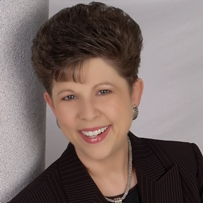Get Ready for Conflict, Leader
- Author
- Beyond Ordinary Women Ministries
- Published
- Tue 03 Jun 2025
- Episode Link
- https://beyondordinarywomen.org/get-ready-for-conflict-leader/

Dr. Sue Edwards

Dr. Kay Daigle
If you’re a leader, get ready for conflict according to Dr. Sue Edwards of Dallas Seminary. It’s inevitable, so we need to prepare for it as best we can.
Dr. Edwards and Dr. Kay Daigle tell the story of a conflict they were both involved in years ago. Dr. Edwards strongly suggests that we learn about peacemaking now and practice it in every part of our lives. Get ready for conflict!
Don’t miss the second podcast in the series: Women’s Tendencies in Conflict, and the third, Empowering Practices in Conflict. Right now all are available on video, but the second and third will drop on our podcast soon.
This episode is available on video as well.
Recommended resources
- Oletha Barnett’s podcast series, Fight Right: 1. The Nature of Conflict, 2. Biblical Resolution 3. Accepting Other’s Differences. All are also available on video.
- All BOW videos on dealing with conflict
- Book: Leading Women Who Wound: Strategies for an Effective Ministry by Sue Edwards & Kelley Mathews
Timestamps
00:22 Introduction
02:45 Get ready for conflict
08:07 Research confirms the need to become peacemakers.
09:43 Conflict in Jesus’ life
Transcript
Kay >> Hi. I’m Kay Daigle of Beyond Ordinary Women Ministries, and I’d like to welcome you to a series on conflict. Our guest today is Dr. Sue Edwards from Dallas Seminary. Sue is the Associate Professor of Educational Ministries and Leadership there. Her complete bio is on our website if you want to read that. This series is really a follow up to a series that we previously posted with Oletha Barnett called “Fight Right,” which will give you the basics of conflict.
Sue and I today are going to talk more specifically about leadership. The title of this series is “Empowering Leaders to Survive and Thrive through Conflict.” So this will be specifically for you, but you will need the basics that Oletha gives about handling it and just some other tips that she has. It’s a wonderful series. You’ll find it also on our website at BeyondOrdinaryWomen.org. This is the first in three.
Right now, we’re just going to talk about “Get Ready.”
Just to give you a little background, Sue and I met years ago and really at the time, Sue was weathering a conflict that she may talk about some in this series. I got drawn into the conflict really when I wouldn’t take a stand against Sue by the people that were attacking her.
And so I became a second target of these people. It bonded me and Sue because we were dealing with the same people and had experienced some of the same things. It was a very difficult time, I know for her, and it certainly was for me. So I know that Sue not only has studied conflict and studied scripturally what to do with conflict, but she has experienced conflict.
She has weathered it; she has experienced it; and she has learned about it.
So, Sue, I’m excited to hear what you are going to tell us about conflict and we’re talking about get ready. So get us ready.
Sue >> I’ll start out by just saying be ready because conflict is coming and the more influential you are as a leader, the more conflict you’ll experience. And our experience was, oh my goodness, it was a horrendous year for me. I was leading a women’s ministry and we were in the same church there.
And a rival Bible teacher (Now, those words should never even be in the same sentence, but that was the reality of what was going on.), she attempted to have me thrown out of the church as a false teacher, and it was over a doctrinal issue that at our seminary our professors agreed to disagree about. It’s a gray area and godly people take different stands on it. But this woman she was not willing to do that. In fact, I remember sitting in the Executive Pastor’s office, and she was glaring at me over the table and she said, “You are holding women’s hands to hell.”
It was that kind of rhetoric that was going on and the Executive Pastor basically said, and of course, he only allotted 15 minutes, which is crazy.
Kay >> Let’s mediate this conflict in . . . .
Sue >> 15 minutes and he basically said, “No more of this. It will not be talked about. It’s done.” And he put the fear of God in me, and I listened and I didn’t say anything about it. I didn’t even tell my leaders what was going on because he had said, “Be quiet.” This woman, on the other hand, went out and gossiped and formed factions and did everything she could to tell everybody she knew.
And it was painful. It was so hard. I think probably because in all my seminary training and all my well, I just never I never knew. I was never taught that this is part of ministry. It’s going to happen to all of us. Now maybe I hope not in that extreme and thank goodness I’ve been in ministry for a while or I don’t know that I could have weathered it. But I will say I was exonerated in the end and she, I think, ultimately left the church in a huff.
But there was a lot of damage done in the meantime, which was very sad, but our book, Leading Women Who Wound which I wrote with Kelley Mathews, came out of that experience. And my teaching at DTS on this—I do a whole session to the men and women in a course that most of them have to take on preparing them for conflict. And in several of our courses, we read books about how to be ready for this because I think I learned a lot about why it’s important that we do this. It happens more and more in churches than we realize.
You think about what are the areas where people are passionate just in life—and it would be probably politics and in our faith, our religion, what we believe about God. So people are that passionate about it. They can disagree and very quickly it can become heated and really hateful and mean. And it’s not supposed to be that way in the church, but those people are there too, the wounded people, the unhealthy people are there.
And so we have to prepare for this.
Kay >> We do. And in a sense, I was somewhat prepared to be drawn into this because the woman that attacked you told some people who then called me to get me in the camp that was opposing you.
And when I wrote them a letter and basically disagreed with them and in the end said, you know, I believe that the pastor wants this not to be talked about. I think that’s the best way forward. And I carbon copied the pastor on it. They then found a way to attack me personally..
Sue >> Yeah.
Kay >> which had nothing to do with doctrine. It was a personal attack. It wasn’t exactly the same person but it was somebody she had drawn in to it.
Sue >> And these are unhealthy people. And we’re always going to have—we’re going to have people who disagree with us. We’re going to have people who come to us and say, “You could have done this better.”
And I think that’s actually helpful. There are very good people who will come and we all have blind spots. We all have areas where we need to get better or things that we just don’t understand that we’re doing. And so it’s helpful for them to come and talk to us about. Those are things that are constructive.
But when it’s from an unhealthy person, then it becomes destructive. And that is when we have our church splits. This is the tool that the enemy uses to, I think, destroy churches more than any other.
In fact, Peacemaker Ministries, in a research study that they did, said that 23% of ministers will either be asked to resign or fired in their lifetime. And it is normally—that’s almost one out of four. We’ll have some kind of altercation where they are going to be attacked personally, probably, and this is all these are unhealthy situations.
So it’s extremely important for us to prepare now in our lifestyle, in our relationships with everybody, that we become peacemakers because suddenly this is a skill it takes time to develop. And we’re not going to suddenly know how to do this when a major conflicts hits in our ministry.
So we’ve got to learn all of those kinds of things. We’ve got to practice biblical principles. We’ve got to come to understand our own way of dealing with conflict. And we’ve got to work through those issues.
Kay >> Right. And, you know, Oletha talks about some of our tendencies in conflicts, so that’s a very important thing to understand. I know in our next video you’re going to talk about women in particular have been somewhat, they have some tendencies of their own.
Sue >> That’s right. That’s right. And we need to be aware of that. But back to expecting conflict. I think it’s so interesting that Jesus who was the perfect—the only perfect person to walk this earth—did he have any conflict? Oh, my goodness. And we think about a couple of examples of even in his own disciples.
You know, we’ve got two there particularly that stand out. We’ve got Judas and we’ve also got Peter who betrayed him. And yet there are two very different responses that I think picture often what we will experience. Judas was his own worst enemy. Jesus knew his heart. He knew what was going on. Judas, though, chose to betray Jesus and then went off and killed himself and they never reconciled.
And I think the question we could ask is if Judas had come back and said, Forgive me, Lord, and I think he probably could have been reconciled. Peter was reconciled, Peter betrayed Jesus, just as much. But Peter’s attitude was entirely different. And he came back, he repented. They reconciled. And then Peter was one of those that was used greatly by God.
And I think that’s a picture of what we can experience, that there will be people who will never— who won’t come back. You cannot reconcile. They are not healthy and they refuse. They’re their own worst enemy. But what we want to see is what happened between Jesus and Peter, and Jesus gives us ways to do that.
And that’s the best case. That’s what we hope for. But that’s out of our control. And we have to just we have to realize that. And when we’ve done all we could do, then we move forward and we don’t allow that to shackle us any further.
Kay >> Right. Well, thank you Sue. And I know that you will all look forward to the next video as we discuss tendencies of women in conflict.
